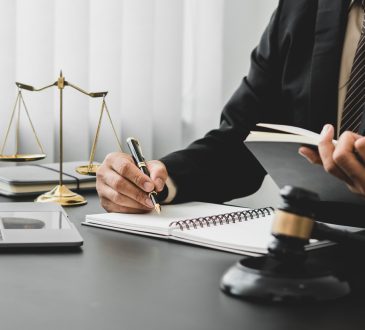
International trade in 2025 isn’t calmer, it’s just clearer where the pressure points are. Tariffs still shape pricing. Sanctions shift with geopolitics. Export controls reach deeper into software and chips. For Colorado companies that source, build, or sell across borders, the difference between growth and gridlock often comes down to one thing: having the right guide. An experienced International Trade Lawyer Denver teams with executives, ops leaders, and compliance managers to translate fast-moving rules into practical steps. This article breaks down how Denver-based trade counsel navigate tariffs and sanctions, build import/export compliance strategies, steady global supply chains, and structure partnerships that actually work. Firms like Sequoia Legal see these issues daily, and help keep deals moving.
Navigating tariffs and sanctions in evolving trade environments
Tariffs and sanctions didn’t fade after the pandemic, they matured. Section 301 tariffs still affect China-origin goods, antidumping and countervailing duties remain active across metals, chemicals, and consumer products, and country-of-origin rules are under a brighter spotlight. On the sanctions side, OFAC programs targeting Russia, Iran, and others continue to expand, with more secondary sanctions risk and closer scrutiny of transshipment through third countries.
What effective counsel does
- Map exposure: A Denver-based trade lawyer starts by mapping a company’s top SKUs to tariff lines (HTS), identifying duty rates, quota risks, and any AD/CVD orders. They often request binding rulings for classification certainty.
- Engineer the tariff: They evaluate tariff engineering and valuation strategies (e.g., assists, first-sale, and free trade agreement eligibility) to lawfully reduce landed cost while maintaining “reasonable care.”
- Manage sanctions risk: They stand up screening for SDN lists, the 50 Percent Rule, and sectoral restrictions: evaluate red flags (e.g., unusual routing via the Caucasus or Central Asia): and interpret general licenses and FAQs so sales teams aren’t guessing.
- Build escalation paths: When questions arise, Is this entity blocked? Is our component “substantially transformed”?, counsel provides quick-read memos or office hours so the business doesn’t stall.
Common pitfalls they prevent
- Treating a supplier’s certificate as gospel on origin or content.
- Ignoring component-level sanctions or the impact of minor software updates on export classification.
- Missing exclusion windows or quota openings that could materially change landed cost.
In short, an International Trade Lawyer Denver helps convert a moving target into a defined playbook, so forecasts, pricing, and commitments stay credible.
Legal strategies for managing import and export compliance
Compliance isn’t a binder, it’s a system that keeps orders flowing. In 2025, that system touches customs valuation, classification, recordkeeping, and export controls that increasingly cover dual-use tech, AI-related software, advanced semiconductors, and aerospace.
Import compliance (CBP)
- Reasonable care program: Counsel designs SOPs for HTS classification, origin determination, and valuation (including assists, royalties, and non-dutiable charges). They document the rationale so it holds up in a CBP review.
- Prior disclosures: If mistakes surface, they prepare a calibrated prior disclosure to mitigate penalties while maintaining the relationship with the port.
- Duty optimization: They explore free trade agreements, first sale for export, duty drawback, and foreign trade zone usage where appropriate. Even small percentage improvements matter at volume.
Export controls and sanctions (BIS/ITAR/OFAC)
- Classification and licensing: Lawyers coordinate ECCN/USML classifications, screen parties and end uses, and secure licenses or apply license exceptions correctly. “Deemed exports” for non‑U.S. persons on R&D teams get special attention.
- Technology control plans: For labs and engineering teams, counsel builds access controls, clean-room data sharing, and training so innovation doesn’t accidentally trigger a violation.
- VSDs and corrective action: When slips happen, they quarterback voluntary self-disclosures with BIS or OFAC, pair them with training, and fix root causes.
Operationalizing compliance
- Policies people actually use: One-page job aids beat 40-page manuals. Good counsel delivers both, plus playbooks for sales, logistics, and engineering.
- Automated controls: Integrating restricted-party screening and ECCN checks into ERP and e-commerce platforms keeps pace with volume.
- Training and audits: Short, role-based training and periodic walk‑through audits keep teams sharp.
This is where a seasoned International Trade Lawyer Denver adds immediate value: balancing legal accuracy with business speed. Firms like Sequoia Legal are often embedded with operations during rollout so compliance becomes muscle memory, not red tape.
Global supply chain challenges facing Denver businesses
Denver companies compete in aerospace, clean tech, outdoor gear, food and beverage, and advanced manufacturing. Their supply chains stretch to Asia and Europe but move inland by rail and truck, so timing and visibility matter more than port-adjacent regions.
The current pressure points
- Forced labor enforcement: UFLPA detentions continue. Documentation must reach back to raw materials, not just Tier 1 suppliers.
- Carbon and sustainability: The EU’s CBAM is in its transitional phase, data quality on embedded emissions will affect market access and cost. Buyers are pushing for auditable Scope 3 data, too.
- Nearshoring rethinks risk: Shifting work to Mexico can shorten timelines but introduces local content rules, IMMEX and VAT questions, and new labor-compliance expectations.
- Logistics variability: Fewer shocks than 2021–22, yes, but chassis shortages, rail service variability, and weather events still ripple schedules inland.
Where counsel makes the difference
- Contract architecture: Tighten Incoterms, delivery risk, liquidated damages, and change-order mechanics so delays don’t become disputes.
- Documentation trails: Build origin, labor, and emissions documentation that survives audits, from mill certs to farm-level affidavits.
- Diversification with intent: Evaluate alternative suppliers against sanctions, export controls, and country-of-origin impacts on tariffs and FTAs, not just price.
With a steady hand from a knowledgeable trade team, often including Sequoia Legal, Denver businesses keep inventory moving and customers confident.
How trade lawyers support international partnerships
International partnerships fail less from bad intent than from thin paperwork. Trade counsel steps in early to design contracts that actually reflect real-world risks and workflows.
Building durable cross-border deals
- Due diligence: Screen counterparties, beneficial owners, and logistics routes: verify compliance programs: and test for corruption exposure.
- Contract guardrails: Bake in sanctions/export-control reps and warranties, ongoing screening obligations, audit rights, and termination triggers tied to regulatory changes.
- IP and tech transfer: Align licenses with export classifications and access controls, especially for software, aerospace, and dual-use tech.
- Payments and currency: Address currency controls, letters of credit, OFAC risks, and anti–money laundering requirements.
- Dispute playbook: Choose governing law, venue, and arbitration rules: set step-down dispute processes so operations don’t grind to a halt at the first snag.
An International Trade Lawyer Denver also trains the partnership teams, sales, procurement, and engineering, so they know what to flag and when. The result is a partnership that can flex with the law instead of breaking on first contact.




